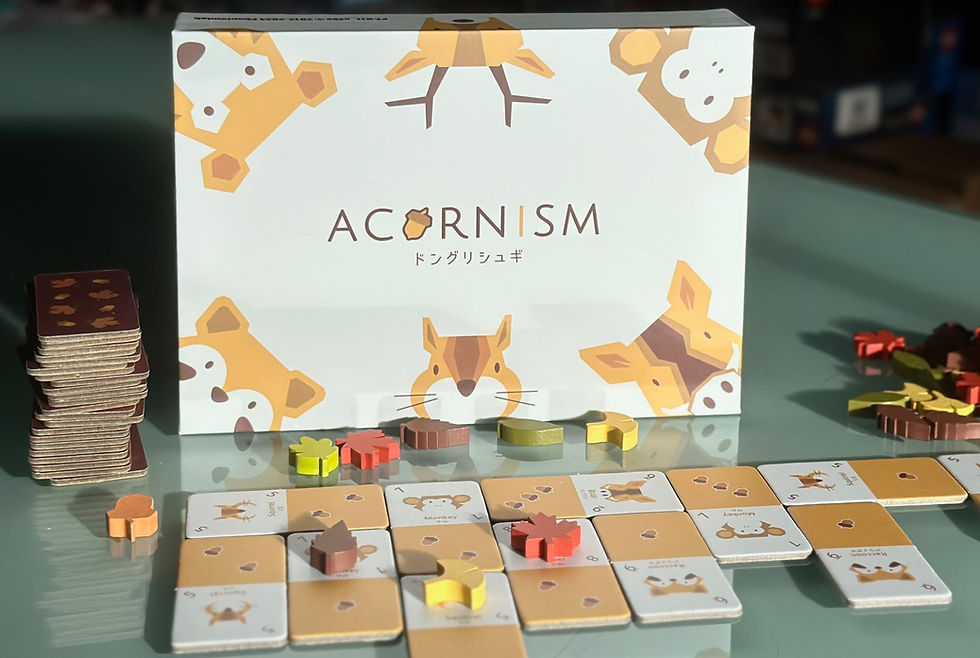Agent Dog
- Board's Eye View

- Jan 24
- 3 min read
The game Dog seems to be particularly popular in German-speaking countries but it's much less well known in the English-speaking world. That's odd because the game itself is language independent. There are variants between its several different editions but at its core Dog is essentially a version of Ludo/Pachisi but with card-driven movement rather than dice. Agent Dog is the latest iteration of the game. It's designed by Johannes Schmidauer-König with art by Dennis Lohausen, and the game is published by Schmidt Spiele with rules in English as well as in German.

Tho' you can play with two or three players, Agent Dog is primarily designed for four players, organised into two teams of two. As with Ludo/Pachisi, each player has four pawns that they need to get around the board and back to their home spaces, and the game is won by the first team to get both sets of pawns home. Players have a hand of five cards, and all five must be played - or passed if you have no legal move - before players are all dealt a new hand of five cards. At the start of each round (new hand) players pass one of their cards to their partner, but this has to be done without communication. Likewise, players aren't able to discuss with their partner the cards they hold and the options available to them...
This is a hand management game because you need to ensure you have legal moves for the cards you play; if for any reason you can't move the full amount shown on the card you play then you don't move and you are out for the remainder of the five-card round. As in Ludo/Pachisi, if you land on another piece you send it back to the start. You can, however, move past other pieces (ie: leaping over them) but not if they are on their starting point. Some cards offer a choice of either moving or bringing on another pawn. Mostly you can only move your own pieces but there are a few cards that let you move your partner's pieces, and the twist in Agent Dog is that if a pawn is on one of the hollowed out spaces, it's flipped so that you can't see its colour: flipped pawns can be moved by any player...
There are some other twists too, including spaces that summon to you the nearest pawn behind you. These can be a good way of giving a boost to your partner or of setting up an opponent so that they are bounced back to their start, perhaps because you know from the card you passed at the start of the round that your partner has just the card they need to land their pawn on top of your opponent's summoned pawn. You can also use this rule as a way of pulling an opponent's pawn past its home section so that it has to complete another circuit of the board in order to get home.
If, like us, you are otherwise used to the dice-rolling movement of Ludo/Pachisi, it's refreshing to discover the additional depth of substititing cards. As a roll & move game, Ludo/Pachisi offers little to elevate it beyond a children's pastime but the hand management in Agent Dog, coupled with the small element of drafting with your partner each round, takes the children's game to the next level. It's still very playable by children but the card-driven movement makes this a much more engaging game for a family of four.




